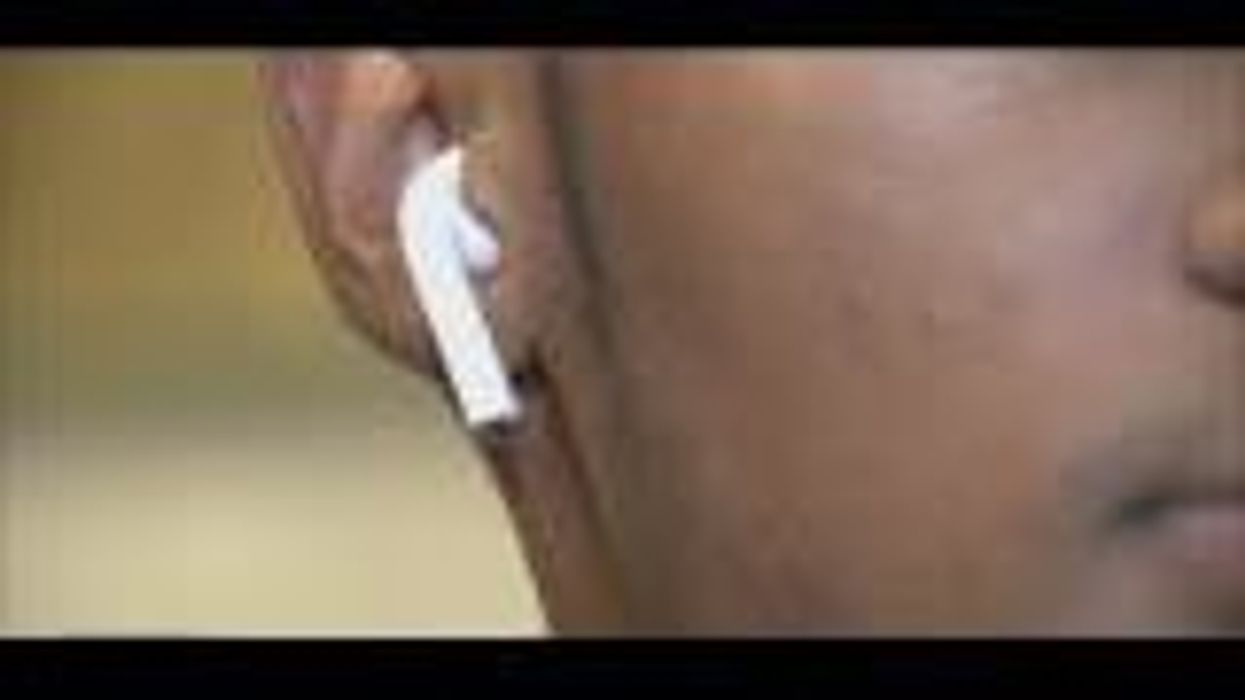Alex Daniel
Jul 15, 2023
Apple sued after amber alert sound on airpods allegedly caused hearing loss
content.jwplatform.com
It is possible for human beings to hear silence, according to a team of philosophers and psychologists, in a huge win for 1960s crooners Paul Simon and Art Garfunkel.
In a study published on Monday by Johns Hopkins University researchers, the team decided that it’s not just sound that human hears pick up: silence is, indeed, something we can hear too.
Rui Zhe Goh, a Johns Hopkins graduate student in philosophy and psychology who was the study’s lead author, wrote: "We typically think of our sense of hearing as being concerned with sounds. But silence, whatever it is, is not a sound — it's the absence of sound. Surprisingly, what our work suggests is that nothing is also something you can hear.”
Sign up to our free Indy100 weekly newsletter
Per the study, published in the journal PNAS, researchers had participants listen to an array of audio illusions. They also periodically substituted the noise for pure nothingness, the measure whether people’s brains would react in the same way.
“Philosophers have long debated whether silence is something we can literally perceive, but there hasn’t been a scientific study aimed directly at this question,” said study co-author Chaz Firestone, an assistant professor of psychological and brain sciences and the director of the Johns Hopkins Perception & Mind Laboratory. “Our approach was to ask whether our brains treat silences the way they treat sounds.”
"If you can get the same illusions with silences as you get with sounds, then that may be evidence that we literally hear silence after all."
The 1,000 participants’ responses were measured across seven different tests. Across all of them, their brains reacted the same way to silence as they did to noise.
“We show that silences can 'substitute' for sounds in event-based auditory illusions,” said the study. “Seven experiments introduce three 'silence illusions,' adapted from perceptual illusions previously thought to arise only with sounds.”
“In all cases, silences elicited temporal distortions perfectly analogous to their sound-based counterparts, suggesting that auditory processing treats moments of silence the way it treats sounds. Silence is truly perceived, not merely inferred,” it said.
“The kinds of illusions and effects that look like they are unique to the auditory processing of a sound, we also get them with silences, suggesting we really do hear absences of sound too,” added study co-author Ian Phillips, a John Hopkins philosopher and psychologist.
Hello darkness my old friend…
Have your say in our news democracy. Click the upvote icon at the top of the page to help raise this article through the indy100 rankings.
Top 100
The Conversation (0)














